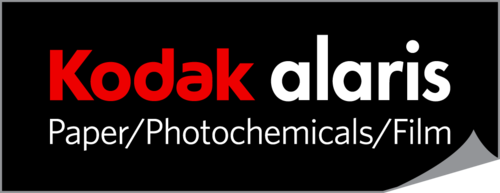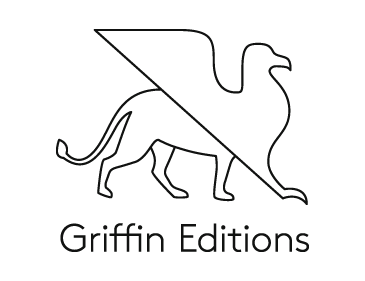Jonathan Mark Jackson
Jonathan Mark Jackson received the Film Photo Award in the Spring of 2019. Justin Levesque catches up (has a photo-inspired kiki) with Jonathan.
What has it meant to receive this award, and to make this work with Kodak Professional Film?
Self-portrait with Kodak Film, Spring 2019
© Jonathan Mark Jackson
I have been greatly humbled by this award and the community that circles around film and analog photography. For myself, the receipt of this grant is the reflection of a long term commitment to the materiality of photographs. I am not biased in the methods that I work in – we are not ruled by our tools - but there is an undeniable power within the film grain and its history.
Kodak film was within my hands and within my family before I understood what a camera was, and it has continued to live closely within my practice through-out my education. I have used the film grain that I chose to receive (Kodak TMax 400) for several years, and I think intimately of its tones and values.
This film, in many ways, has visually shaped how I perceive the world.
Justin Levesque (JL): Hi Jonathan! First off, congratulations on receiving the Film Photo Award! Would you mind sharing some of the basics in terms of your background?
Jonathan Mark Jackson (JMJ): Thank you. I was born and raised in Detroit, Michigan and am currently based in Greenfield, Massachusetts. I moved to Greenfield after graduating from Amherst College in 2019.
© Jonathan Mark Jackson
© Jonathan Mark Jackson
JL: Because you won the FPA Student Award, I'm going to focus on that for a minute. Did you study photography at Amherst? Can you describe the evolution of your work, or even just the way you think about making work, between Freshman year and now as a graduate
JMJ: Yes, photography was the dominant focus of my studies at Amherst. But I also worked in and took classes in each of the six disciplines of Amherst's Studio Art Department (Photography, Film & Video, Printmaking, Painting, Drawing, and Sculpture). Self-portraiture was the thematic and methodical pulse of my work as an undergraduate
I began making photographs in a sort of "all consuming" way. Photographing myself in the studios at Amherst and then into the landscape of Western Massachusetts. All the time, every day. This work culminated in my senior thesis project, in which I photographed myself in a historically persevered house museum that one of my paternal ancestors worked in. This body of work shares its title "The House Servants Directory" with the original text written by my fifth great grandfather. While at Amherst as well, I worked thoroughly within the colleges Archives & Special Collections. The process of my thesis and archive work - which fed me both academically and in my studio practice - I feel is still the focus of my studio practice. I would say my work has evolved from an inward facing practice to an outward one, I am considering how history is formed and tracked through ones individual and collective experience.
© Jonathan Mark Jackson
© Jonathan Mark Jackson
© Jonathan Mark Jackson
© Jonathan Mark Jackson
© Jonathan Mark Jackson
JL: We’re so coming back to all that in a second. But first, as a recent grad, and no pressure, what are some short or long-term next steps you're considering?
JMJ: My short-term goal was to figure out how to survive in the world without my precious - private - darkroom and lab, haha. Although I am not far from the college, and still work with my mentors on a regular basis, I felt the most important thing for me to do was to find a studio I could afford and begin to build out my practice outside of school. This brought me out to Greenfield, where I am still. In my long-term eyes, I've been structuring the past few months as a "year off". I will be joining the next class of graduate students at RISD this coming Fall to pursue my MFA.
JL: Wow! Congrats again! That’s a huge accomplishment! So, this is the last background question before we jump into your work, but I’m just curious to hear about how your conversion to a being full on “New Englander” has been and if that’s at all been an influence on you?
JMJ: I think its been a huge influence on me and my work. Detroit, of course, has a huge and complex history that I've been thinking about all of my life. But it isn't a place, for many reasons, that I felt I could return to immediately and continue the kind of work I'm making. There is something in the nature and attitude of these small towns that is constantly intriguing and mysterious to me. And as I noted before, through all of the work from the past year, I've been looking into the New England landscape and into the lives of my ancestors with many more questions as to how "New England", more than any other region of the United States, has shaped my specific American identity.
© Jonathan Mark Jackson
© Jonathan Mark Jackson
© Jonathan Mark Jackson
JL: When I was researching your work, I of course noticed an emphasis on self-portraiture on your website. So, I was actually somewhat surprised to see the images you’ve produced from your Film Photo Award being focused on the landscape. Can you tell me what this new project is called and what it’s about?
JMJ: I've yet to really title the work. During the application process for FPA I used the title Points of Entry, which I think still accurately reflects the desire that I had in moving outside. I was interested, after a year of photographing in the same house over and over, what would happen if I both stopped making self-portraits and photographed in a boundless space. I think that I will continue making self-portraits (I can't really imagine a life where I don't make them at this point), but the language and use of the body within the photographs had reached what felt like a level of completion in the previous body or work. As a continuing guide, I sought to photograph in spaces where my 19th century ancestors lived or worked. This took me around to sites between Rhode Island, Connecticut and Massachusetts. I believe that the work is aiming to question, again, my relationship to this land as a Black American/descendant of the many discredited peoples in its history, and I wanted to see if that could be possible without utilizing my complete form.
© Jonathan Mark Jackson
© Jonathan Mark Jackson
JL: I’ve actually only recently become a convert when it comes to making images of the landscape too. Especially of spaces and places where there is this kind of personal and/or historical connection. I find your landscape images to be almost speculative non-fiction or a history reimagined. But I think it’s fascinating how you’re then using this concept of the archive, or what looks like to be found letters, to push the context of those images further into that dialogue. Can you tell me more about your use of text and archive as it relates to this work?
JMJ: Yes. Because many of the photographs open up in a way that begs for an anchor, I've been trying to figure out what language can provide to the work. "The House Servant's Directory" was led by the book of the same name - a guidebook truly. I wondered what language, or storytelling form, could exist without spelling out the who/what/when etc. The answer came to me in the form of a letter. At the end of the summer my father sent me a letter that was written by my late Grandfather Frederick in 1970. The letter is a thorough and dense report of my grandparents lives in Texas just after Hurricane "Celia". The letter is simply addressed as "Dear family-back-home". This broadening of the letters intended audience made me reflect on the nature of primary source archive research surrounding letters written by enslaved peoples, the form of runaway slave advertisements as documented details of resistance and power, and the nature of storytelling and folktales. As you describe it the text seeks to fictively provide context to the images. The letters are an amalgamation of found letters, appropriated language from materials in the landscape (signage, postings), and condensed auto-fiction. In my mind, there is a relationship forming between photographs and letters as documents that are considered "truthful" in archives. I think some next steps for this work is to push the boundaries of the non-fictive/auto-fictive divide.
© Jonathan Mark Jackson
© Jonathan Mark Jackson
© Jonathan Mark Jackson
JL: Yes, I really feel that! And it's also such an elegant solution for signaling the non-truthiness truth inherent to the created image or photograph. I'm also seeing a continuity from your previous projects to this one in terms of how your process seeks to challenge or, more accurately, provide a queering of the image, the body, history, etc. And there's also this radical subtle quality to the way you make those gestures. How do those concerns inform the way you're making choices in your practice?
JMJ: I think that I have struggled with the literal concepts of visibility or invisibility from the beginning. Should my form be present or not? If so, what parts of the form? What color should the form take? My own internal arguments are focused on the control of the perception and reading of the photographs. What I've begun to accept though is that I have general leaning towards a discursive path or, for lack of a better term, one that is not straight (ha.) or direct. I think these concerns inform the acquisition of knowledge within and around my practice. The research and the methods that I employ to make photographs or write are iterative and always crossing between the other.
This also, I suppose, gets reflected in the physical form of the work. With each project, I question again and again the control we gain or lose by the photographs form. This work has yet to find is footing on what its correct form should be.
© Jonathan Mark Jackson
© Jonathan Mark Jackson
© Jonathan Mark Jackson
© Jonathan Mark Jackson
JL: Right, right, it gets complicated in photography in that way–how images can be both an object or not an object, all at the same time.
Well, Jonathan, thank you for sharing so much about yourself and your practice. Again, big congrats on RISD! I'm looking forward to seeing where the journey takes you and your images. Is there anything you'd like to add or say that I didn't bring up?
JMJ: Thank you for taking the time to chat! I could easily go on and on, but I am so very grateful to the team at FPA. This work is far from finished but I value the support that has been formed through this grant. I hope more and more students at varying stages get the opportunity to build their practice through this amazing initiative.
© Jonathan Mark Jackson
© Jonathan Mark Jackson
© Jonathan Mark Jackson





